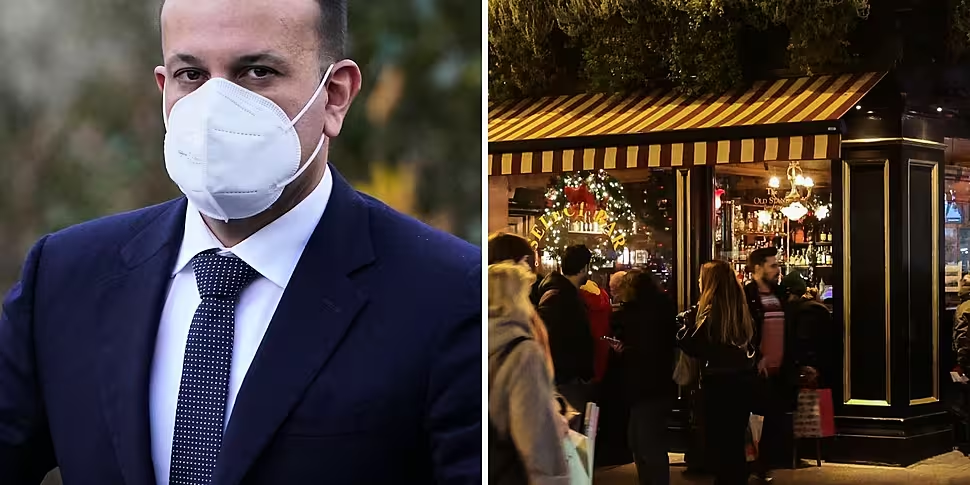There is ‘no secret plan’ to introduce tighter COVID restrictions in the new year, the Tánaiste has told Newstalk Breakfast.
Leo Varadkar was speaking as the new 8pm curfew for bars and restaurants comes into force.
The closing time applies to all hospitality venues, as well as cinemas, theatres and other indoor events.
Meanwhile, all indoor events happening before 8pm are limited to 50% capacity or 1,000 people, whichever is lower. Outdoor events are limited to 50% or 5,000 people.
Reports over the weekend suggested health officials were already planning tighter restrictions for after Christmas – including the full closure of hospitality and a delay to the return of schools.
Minister Varadkar said there are currently no plans to tighten restrictions.
“We don’t plan to tighten restrictions this side of January 30th and hopefully we will be relaxing them then or even before then, but we can’t rule anything out,” he said.
“There is a Cabinet meeting tomorrow; there isn’t another Cabinet meeting scheduled until the new year, but this virus has surprised us how many times now?
“We are not where we thought we would be of course. We thought that getting over 90% of people vaccinated would confer sufficient herd immunity on us that we wouldn’t need to be reimposing restrictions again.
“We find ourselves in a position we didn’t expect to be in and hoped not to be in so nothing can be ruled out, but I did see some newspaper reports over the weekend of some sort of secret plan to tighten restrictions or impose a lockdown after Christmas or in the new year – that is not in the plans.
“But of course, nothing can be ruled out because this is such an unpredictable and remains an unprecedented situation.”
He said it remains too be seen what impact Omicron will have on the health system.
“What we are going to see is a big increase in cases and we need to be prepared for that,” he said.
“What we need to see, crucially, in about ten days or two weeks’ time, is how that translates into increased hospitalisations and ICU admissions.
“What they seem to be seeing in other countries, particularly southern Africa, is huge pressures on the primary care system because the symptoms appear to be milder than other variants and not as big an impact on the hospitals, so we need to be prepared for that as well because our GPs and our primary care system are going to need a lot of help.
“Now whether that is because the variant is inherently less virulent or because of vaccine immunity and natural immunity building up and giving people more protection – we just don’t know at this stage.”
He said the cases are likely to come hard and fast in the coming days.
“Based on what has happened in other countries – in Norway and Denmark, South Africa and New York, it is going to come hard and it is going to come fast," he said.
“There will be a lot of cases. Perhaps cases breaking all records in the next couple of days and that will then lead to a rise in hospitalisations and ICU admissions and sadly deaths as well – but we don’t know how bad that will be.”









